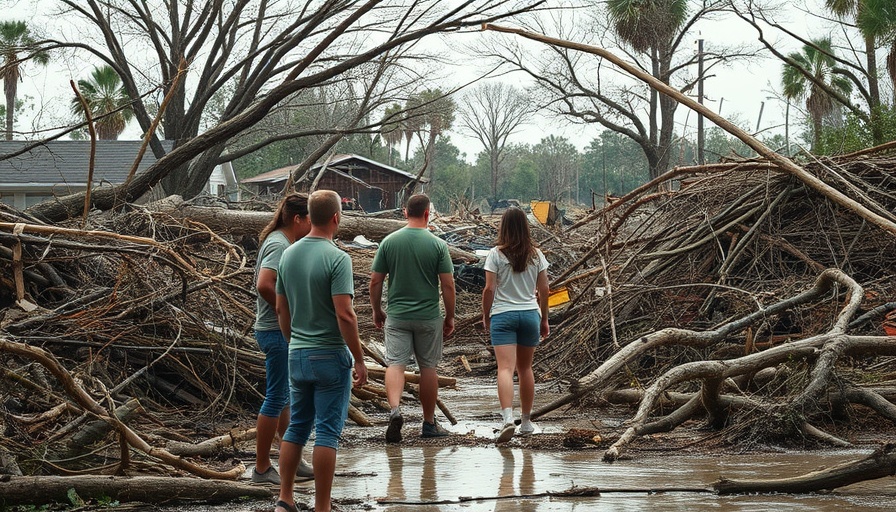
The Circumstances That Led to Tragedy
In early July 2025, the serene landscape of Kerrville, Texas, was dramatically altered as a catastrophic storm struck, resulting in tragic flooding. This disaster unfolded when, after weeks of drought, heavy rainfall fell upon the region, tragically bringing an end to the lives of 27 campers and counselors at Camp Mystic and many others across Texas. These events were not coincidental; they were the byproduct of a unique, unsettling convergence of weather patterns amplified by climate change.
How Climate Change Shaped the Conditions
Climate change has rendered our atmosphere more chaotic, resulting in weather extremes like the one seen in Texas. The region had been experiencing a drought, where only minimal rainfall occurred throughout June. However, drought conditions can paradoxically set the stage for flooding. With the soil dry and unable to absorb water effectively, when rains finally did come, they resulted in immediate runoff rather than soaking into the ground. This is exactly what occurred under the hot conditions of a heated Gulf of Mexico, providing the fuel necessary for catastrophic rainfall.
The Role of the Gulf of Mexico in Weather Patterns
The Gulf of Mexico plays a crucial role in shaping Texas' weather. The elevated temperatures of its waters in July contributed to the intensity of the storm. Warm water can lead to increased evaporation, resulting in heavier downpours when combined with atmospheric conditions. This phenomenon demonstrates the interconnectedness of climate factors, where warm sea temperatures lead to volatile weather and devastating storms.
Understanding Drought and Flooding
What many might not realize is that weather extremes often coexist; drought-prone regions can also be susceptible to flooding. As noted by meteorologists, not long before this flood, Texas was grappling with a severe drought. The lack of moisture meant that when it ultimately rained, the water had nowhere to go but to flood the land. This discussion underscores the need for better understanding and planning in dealing with the impacts of climate change on local weather conditions.
Future Implications for Texas and Beyond
This incident provides a critical lens through which Texas and potentially other regions need to prepare for future weather events. As climate systems grow increasingly unpredictable, enhancing flood forecasting technologies and strengthening infrastructure to withstand such extreme weather becomes paramount. Communities in drought-stricken areas must also focus on moisture retention strategies to mitigate the effects of potential flooding.
Common Myths About Climate Change and Weather Patterns
Public misunderstandings persist regarding the relationship between climate change and natural disasters. One common misconception is that warming climates produce only heat-related tragedies; however, as seen in Texas, drought conditions can easily precipitate extreme rainfall and flooding under the right circumstances. Such knowledge is crucial for fostering informed communities that recognize how climate change impacts weather dynamics.
In closing, as discussions surrounding climate change and its impacts continue, it is vital for Texans and others worldwide to educate themselves on the implications of climate variability. Awareness and preparedness can save lives and resources in the face of increasingly severe weather scenarios. By understanding these key weather ingredients, we can better advocate for policies that prioritize climate resilience while providing support for affected communities.
 Add Row
Add Row  Add
Add 




Write A Comment